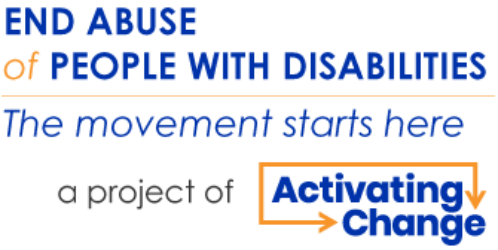Stalking is a prevalent, dangerous, and often misunderstood crime. For victims with disabilities, stalking can be even more complex, with additional barriers to seeking help, increased vulnerability, and unique challenges in safety planning.
In this webinar we will offer foundational information on the basics of guardianship of adults with intellectual disabilities. This will include types of guardianship, who guardians are, and the timing and scope of guardianship for adults. We will then explore together a few scenarios based on real situations and play “what would you do?”
Attendees will learn to identify stalking behaviors and dynamics, recognize the intersection of stalking with other crimes, and apply strategies for working with survivors with disabilities who have experienced stalking. Join this informative webinar, presented by Natalie Ivey, the Training and Criminal Justice Specialist for the Stalking, Prevention, Awareness, and Resource Center (SPARC), an Aequitas initiative..
People with disabilities are targeted at higher rates than their peers for exploitation and/or abuse, including trafficking. Traffickers deliberately target individuals they know they can isolate and control and both individual and systemic conditions increase the risk for people with disabilities. Specifically, people with disabilities often live in relative isolation, may rely on assistance from others to get to work and to access basic services and may be denied information about trafficking. Compounding these individual risk factors are barriers within our systems to identifying and supporting survivors with disabilities. This includes barriers to reporting or seeking help, a lack of disability-centered victim responses, and a lack of economic resources due to the devaluation of people with disabilities and their labor.
In an effort to address some of these gaps, Activating Change, in partnership with the National Human Trafficking of People with Disabilities Working Group, has developed an in-depth training for law enforcement on effectively identifying and responding to trafficking cases involving victims with disabilities. This webinar will introduce the training to the field, explore the barriers it is attempting to address, and preview how you can access the training.
Guardianship is a factor in the lives of adult survivors with disabilities that would not be a factor for adult survivors without disabilities. For some adults with disabilities, the courts have appointed replacement decision-makers in their lives, having deemed them incapable of making some critical decisions. In this webinar we will offer foundational information on the basics of guardianship of adults with intellectual disabilities, including solutions and paths forward to help service providers better plan for their policies and procedures on guardianship.
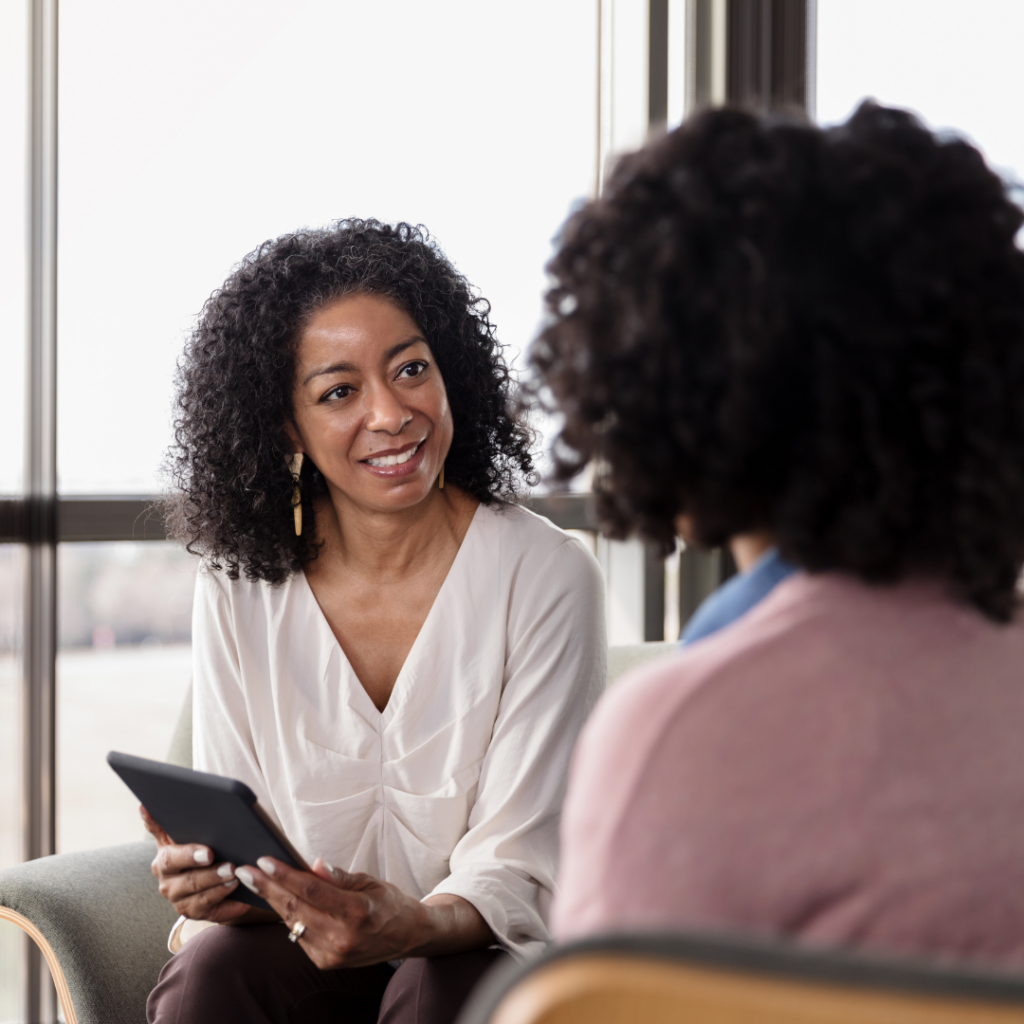
Plain language is a style of writing that is meant to be accessible to many people, especially people with intellectual disabilities. In this webinar, we will discuss plain language and its importance to survivors with disabilities and survivors in crisis.
Together we will explore how plain language impacts trauma-informed practices and survivor outcomes. We will focus on strategies for communicating using plain language, with examples and time for practice. Lastly, we will explore tools to check for plain language within written documents. Join this interactive and practical webinar presented by Aquia Pusch from Activating Change.
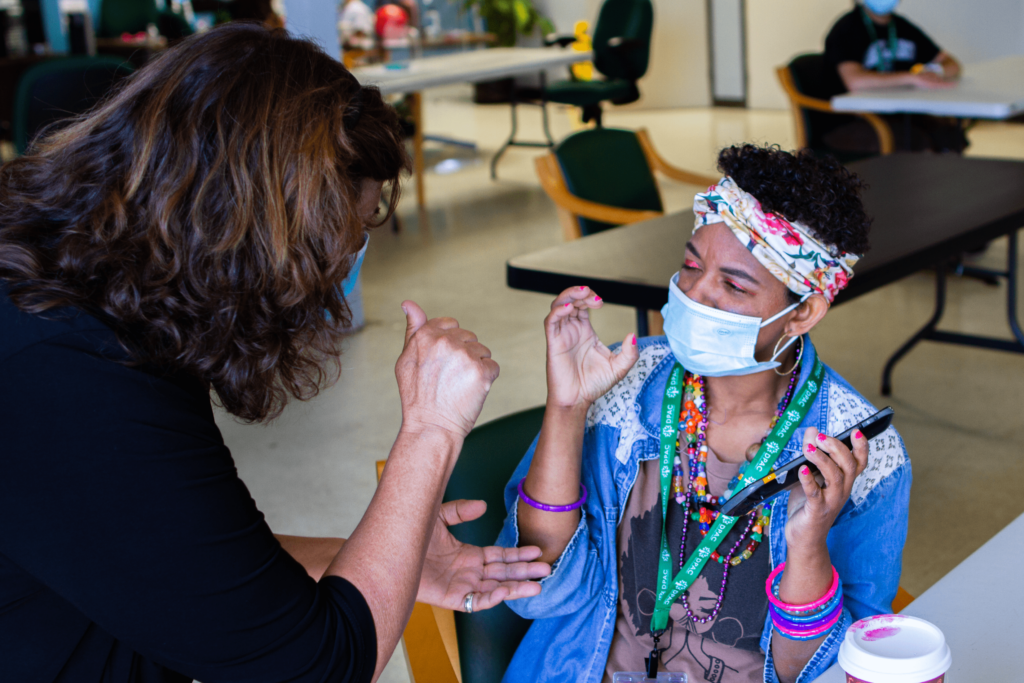
Research on victimization within the Deaf Community suggests that Deaf individuals living in the United States have higher levels of domestic and sexual victimization than their hearing counterparts. Despite these higher rates of domestic and sexual violence, Deaf survivors face barriers that prevent them from getting help. Language access planning is a solution designed to remove the barriers that Deaf survivors face and ensure that they receive culturally responsive services.
This webinar is designed for victim service providers and allied professionals and will provide an overview of how to create a language access plan specifically for Deaf survivors or to expand the plan your organization already has in place to include Deaf survivors. We will outline a process you can use in your organization to create this plan along with key questions for you to consider as you develop a plan tailored to your organization’s and your community’s specific needs. We will also discuss practical strategies to help your organization remove the barriers that Deaf victims and survivors routinely face when accessing services and help you to create more accessible and culturally responsive services. We will also showcase and make available a new resource, “Developing A Language Access Plan to Serve Deaf Survivors,” which is a robust guidebook outlining exactly what your language access plan should entail, and how to successfully implement it in your organization.
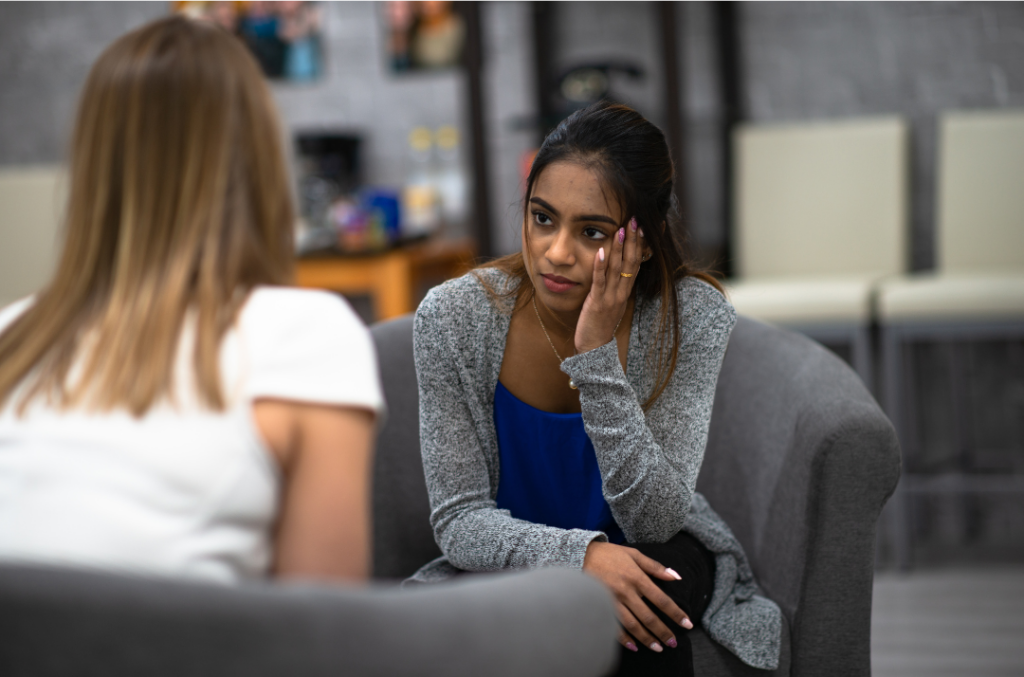
There is a deep and tangled connection between the trauma of domestic and sexual violence and mental health disabilities. In this webinar, we will untangle this connection while providing practical answers to supporting survivors with mental health concerns. We will focus on the impacts of mental health disabilities alone, and then take a closer look at the impact of trauma on these disabilities. Together we will discuss how to adapt trauma-informed practices to meet the needs of survivors with mental health disabilities.
Join this exciting webinar, presented by MeLisa Dennis, a Licensed Clinical Mental Health Counselor with extensive experience providing mental health and domestic violence services.

Research consistently demonstrates that people with developmental disabilities are at increased risk for adverse life events, abuse, and trauma. Yet, little has been done to understand how trauma impacts the neurobiology of people with developmental disabilities despite there being body of research and practice dedicated to understanding the impact of trauma on the brain and nervous system.
During this webinar, Dr. Frederika Theus – a clinical psychologist who specializes in treating people with developmental disabilities – will discuss how to adapt trauma-informed practices to meet the needs of survivors with developmental disabilities. She will contrast what is known about the neurobiology and impacts of trauma in people without disabilities and people with developmental disabilities. She will explore the implications of using a trauma-informed approach with people with developmental disabilities and provide practical suggestions for how to adapt trauma-informed responses to better meet the needs of these survivors.
Nothing about us without us is a common phrase used in the disability rights movement to mean nothing should be created for a community without the meaningful participation of that community. Self-advocates have been leaders in the disability rights movement for years and are increasingly expanding their work in the survivor advocacy field. They have the wisdom and life experience to know how to dismantle ableism and best support victims of crime with disabilities, if only we listen.
This webinar, aimed at survivor advocacy organizations and disability service providers, will provide an overview of the participation of self-advocates at the intersection of violence and disability. The self-advocates on the panel will discuss the essential role self-advocate leaders must play if we want to end gender-based violence. Join us for this engaging conversation with Cindy Bentley, facilitated by Leah Green.
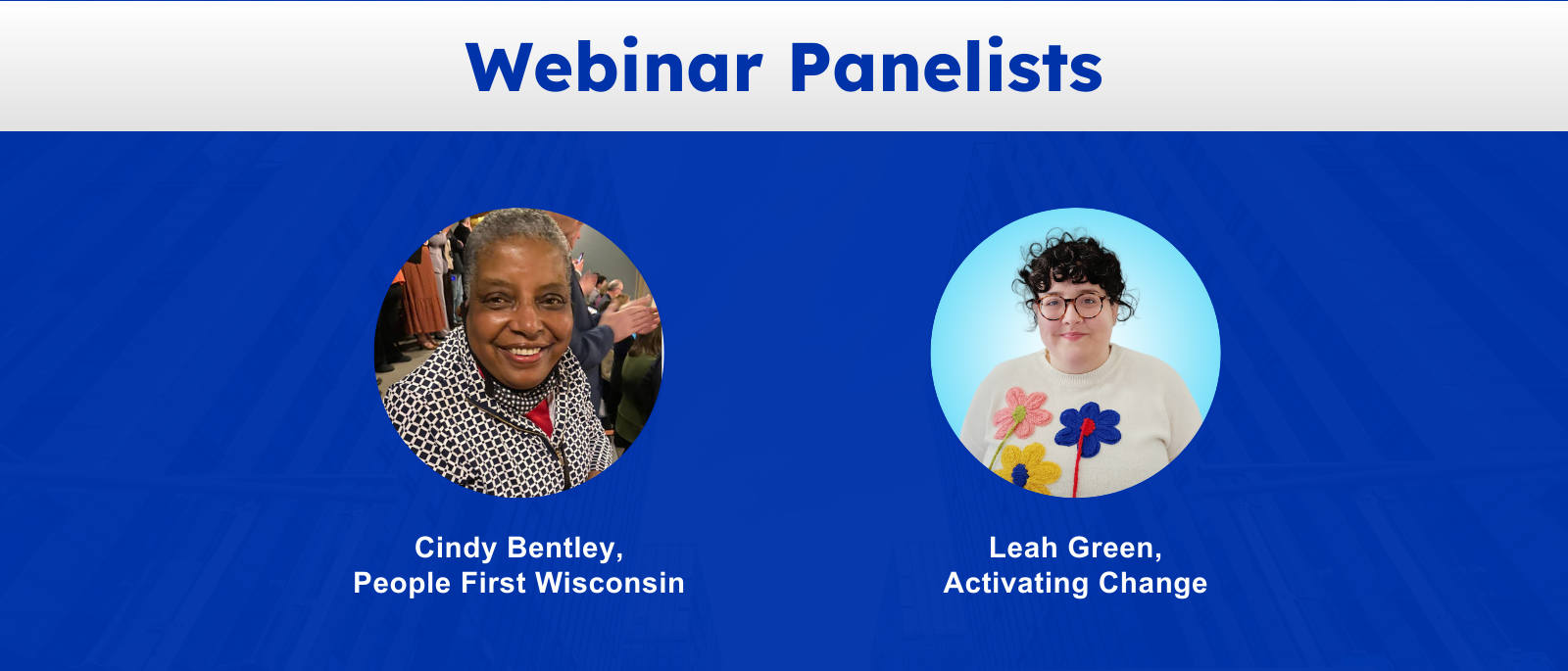
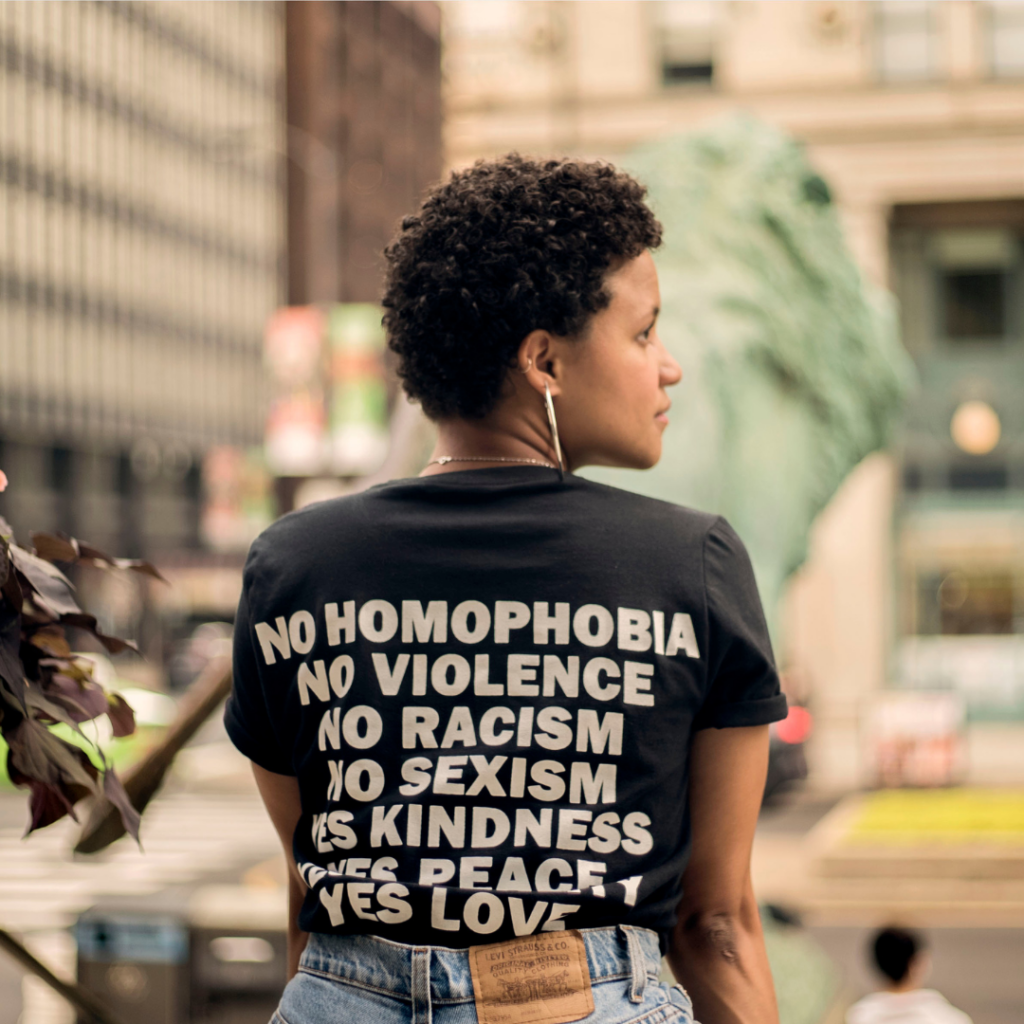
Domestic and sexual violence impact members of the Deaf community at high rates. Yet, many service providers are not prepared to address the needs of this community. Specifically designed for professionals working in domestic violence and sexual assault programs, law enforcement, and healthcare settings, this webinar will provide invaluable insights into the unique challenges experienced by Deaf survivors and strategies for better serving this community.
Join us for this informative and engaging presentation by DeAnna Swope, Senior Program Associate from Activating Change, and Roberta Eaton, Executive Director of Deaf DAWN.
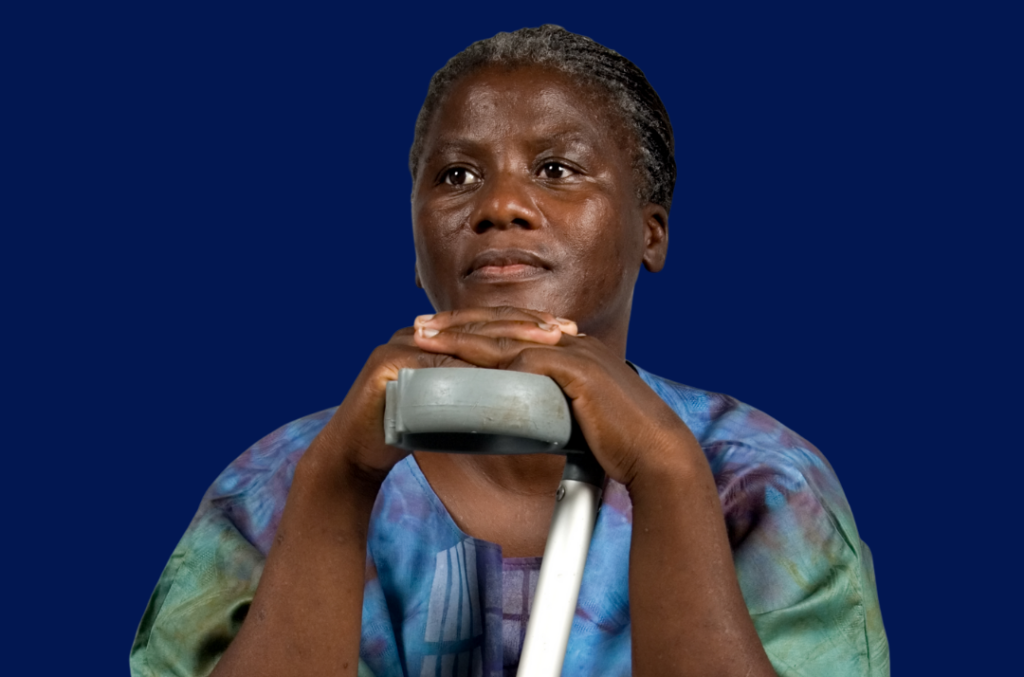
Research has shown that some people with disabilities experience an increased risk of domestic and sexual violence compared to people without disabilities and that those who do experience such violence reported a larger number of perpetrators and a greater duration of violence. When survivors with disabilities reach out for healing services, they often face barriers and ineffective assistance. The causes of these high rates of violence and the barriers faced by survivors with disabilities are rooted in systemic oppression. This webinar will explore domestic and sexual violence in the lives of people with disabilities and how our society creates the conditions for abuse in this community. In particular, our presenters will discuss how racism and ableism intertwine to marginalize and dehumanize people with disabilities. The webinar will provide foundational information we will build on throughout the year as we continue to explore some of the particular areas of interest at the intersection of violence and disability.
Join us for this insightful webinar, as our guest Cierra Olivia Thomas Williams, and Olga Trujillo, Director of Leadership Development and Collective Healing with Activating Change explore the unique dynamics of violence in the lives of people with disabilities. This will include a focus on what you can do to help make your program and community more accessible.
The full webinar and reference materials are available in our resources.
